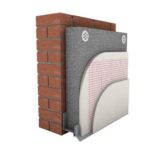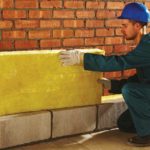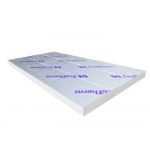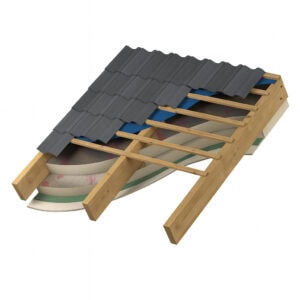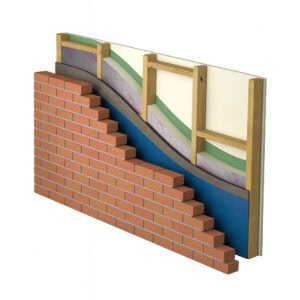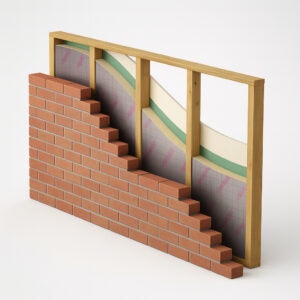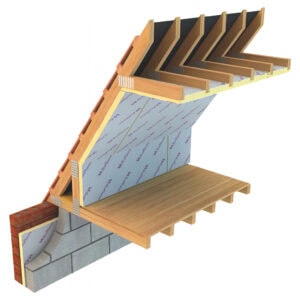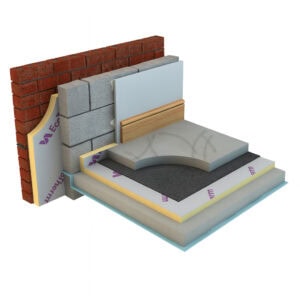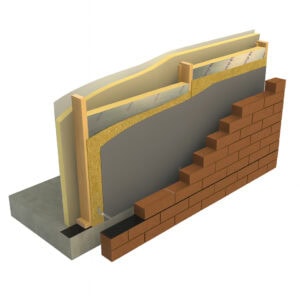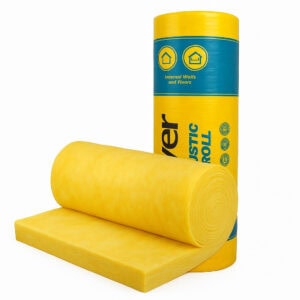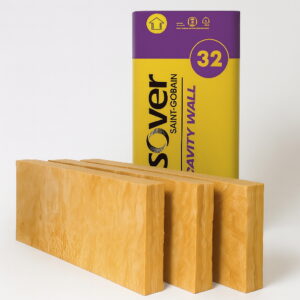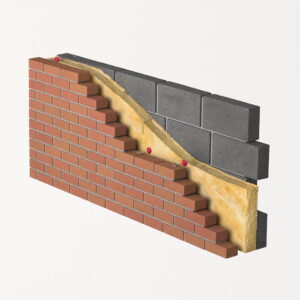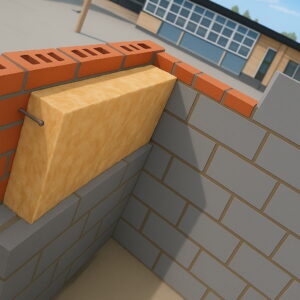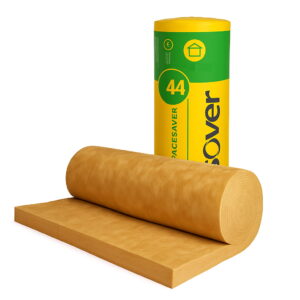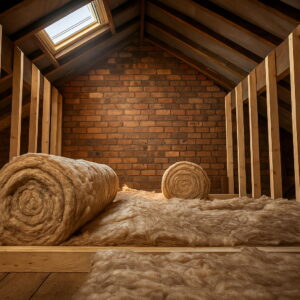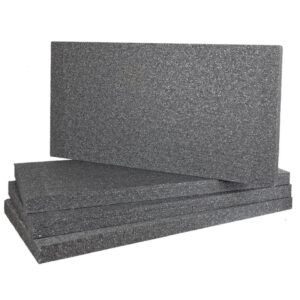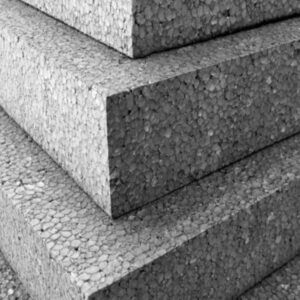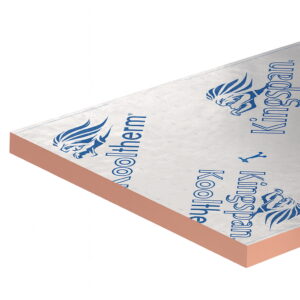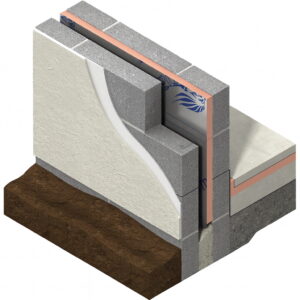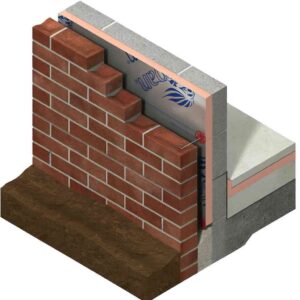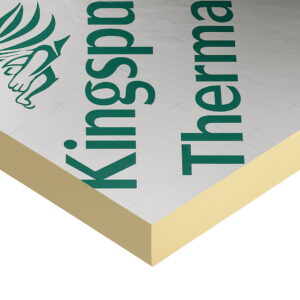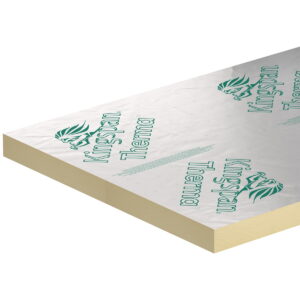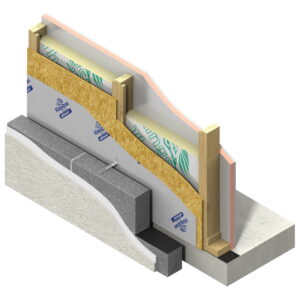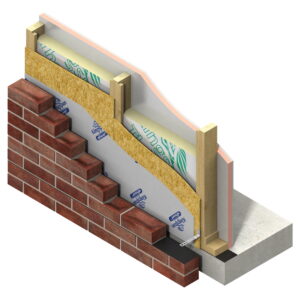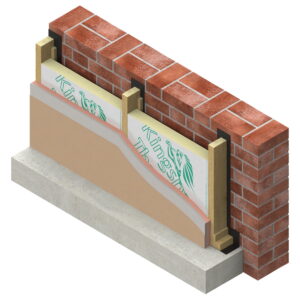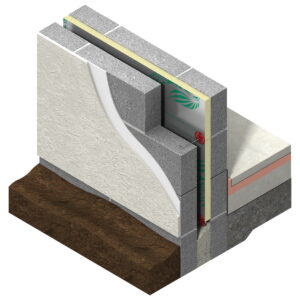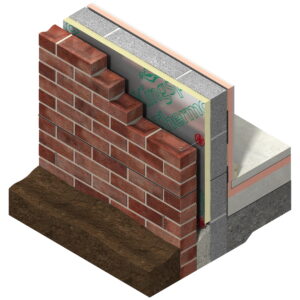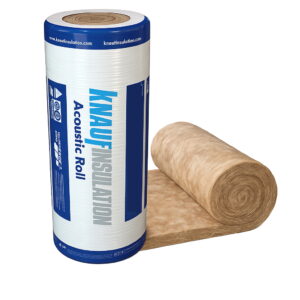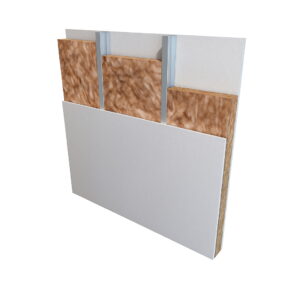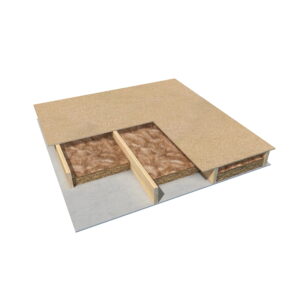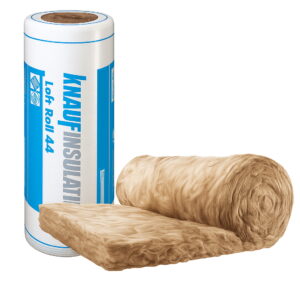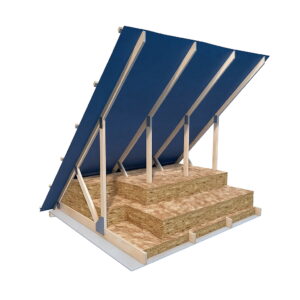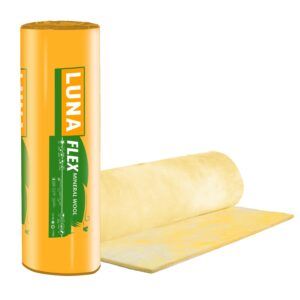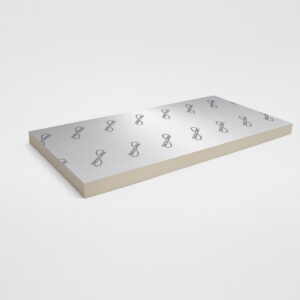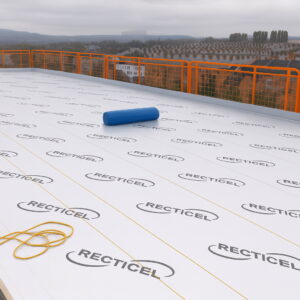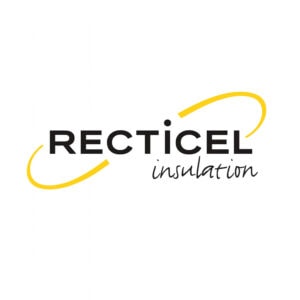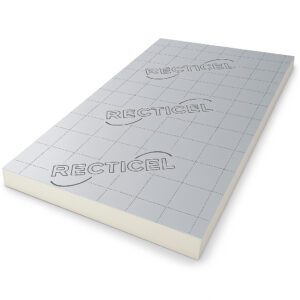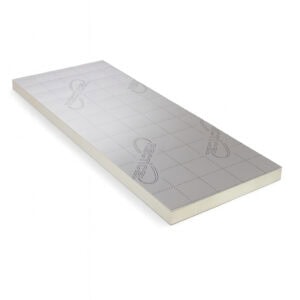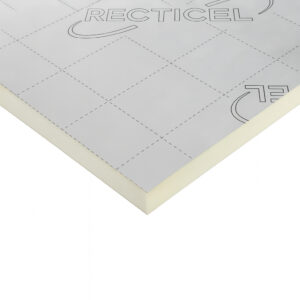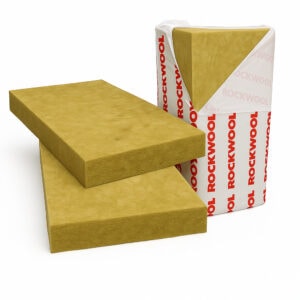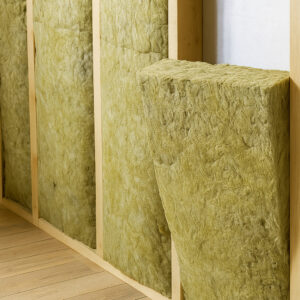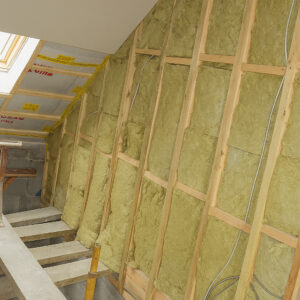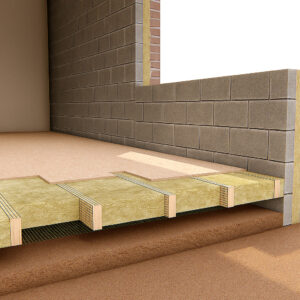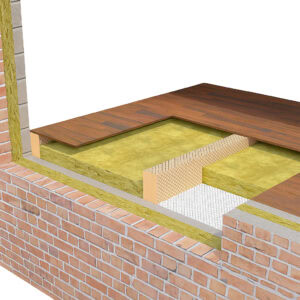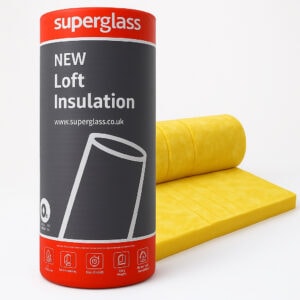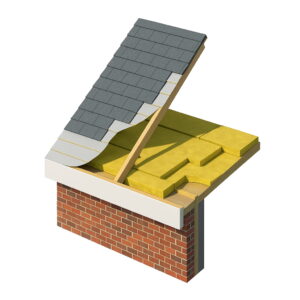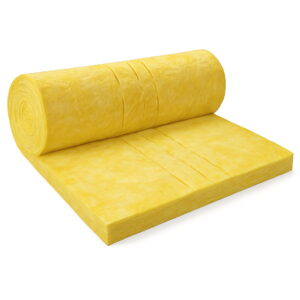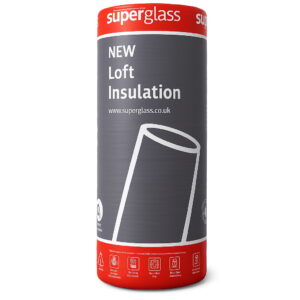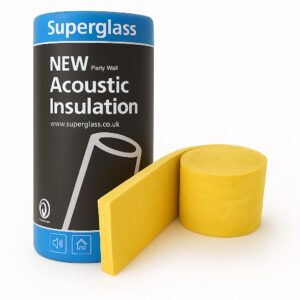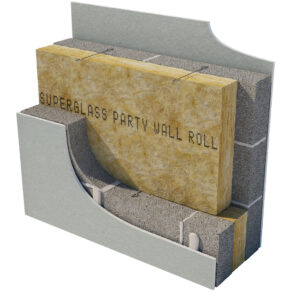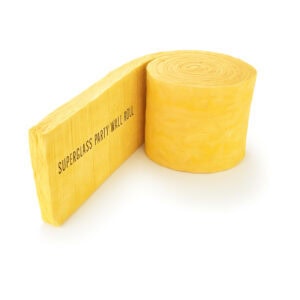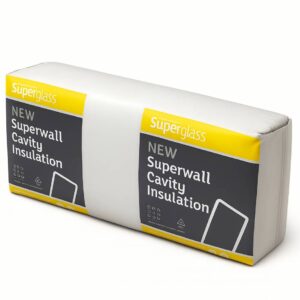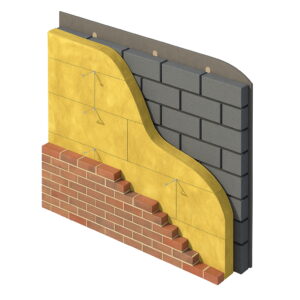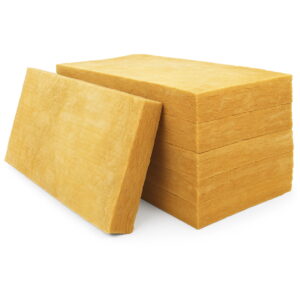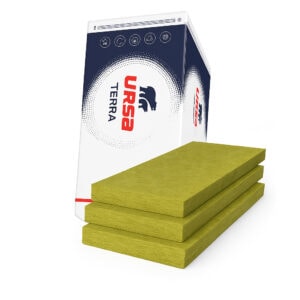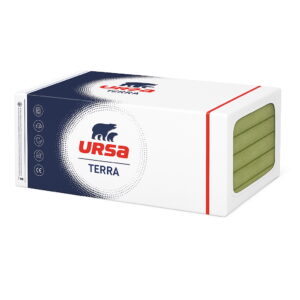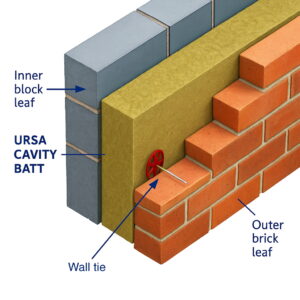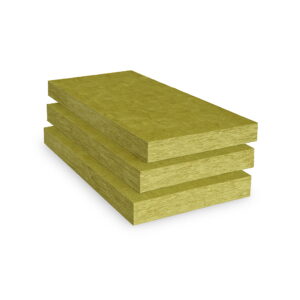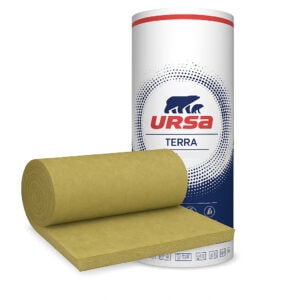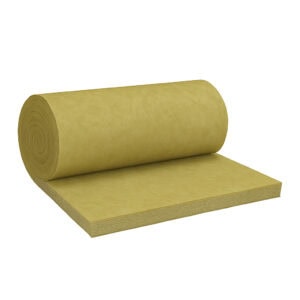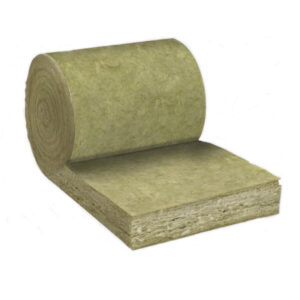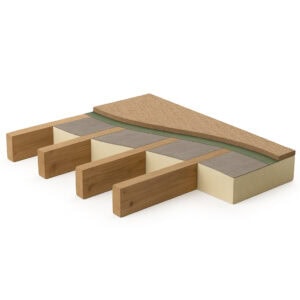Wall Insulation
Search our extensive range to find the high-quality wall insulation you need to minimise rising energy bills while also making your home a much more comfortable place to live all year round.
Effective home insulation can help you save hundreds of pounds on heating bills every year. This means it won’t take long to start profiting from your investment.
But what is the best insulation for walls around your particular home? How do you choose?
Reach out to our friendly and supportive team on 0203 318 7316 for an expert recommendation. Or check out our essential insulation guide here:
What is wall insulation?
Wall insulation is designed to minimise the transfer of heat through the walls of your home. It does this by being a poor heat conductor, slowing the thermal energy as it tries to escape.
The latest insulation materials are often rated by their “lambda value”, a measure of thermal conductivity where a lower number is better.
We stock all of the most effective modern options, including those made from fibreglass, foam, polystyrene, and rock and glass mineral wool. These materials all display the key qualities you need from high-quality wall insulation. They:
- Are light – meaning they don’t allow heat transfer by conduction.
- Trap air molecules – so heat can’t cross the wall by convection.
- Have some mass – to prevent heat spreading by the process of radiation.
Does insulating your home save you money?
Yes. Around 33% of the energy wasted heating our homes passes out through the walls. This makes wall insulation a vital part of ensuring you don’t need to replace all that heat lost to conduction, convection, and radiation.
Poorly insulated homes are less comfortable to live in too. They are colder in winter and hotter in summer, a growing problem when extreme weather conditions like heat waves are on the rise.
Insulating your home’s walls is a smart investment for the future. The wall insulation in our online store is designed by the leading manufacturers in the UK and globally, enabling you to start reducing bill payments and stay comfortable no matter what the outside weather is up to.
How to insulate walls
When you’re working out how to insulate walls, the type of wall you have is the most important thing to determine. If you live in the UK, your home will have one of two types of wall:
Cavity walls – most modern UK homes have cavity walls. These consist of a brick layer and a block layer with an air pocket in between. To insulate them, you drill a hole into the cavity and inject a foam.
Solid walls – UK homes built before the 1920s often have solid walls. Working out how to insulate walls without a cavity is a little different. It can be done internally or externally, with each having a variety of benefits.
Types of wall insulation
Explore our huge online store to discover reliable, proven options for any type of wall insulation you might need:
External Wall Insulation
External wall insulation is affixed to the exterior of your home. It can be covered by rendering, cladding, tiles, panels, or even brick-effect slips. You need to have access to the exterior walls of your home. But the rewards of energy bill reduction, no internal disruption, added acoustic insulation, and repaired brickwork damage – reducing draughts and damp – are well worth it.
Internal Wall Insulation
There are numerous options when it comes to how to insulate walls internally. Installing internal wall insulation most often involves constructing stud walls filled with glass or rock mineral wool fibre or affixing insulation boards directly to the walls themselves. The process can be a little disruptive, but there are huge upsides.
Cavity Wall insulation
Most people trying to work out how to insulate cavity walls are surprised at how simple the process is. Essentially, all you need to do is drill tiny holes in the exterior wall, inject the insulation, and then seal it. There are different cavity insulation materials available in our store to suit every individual need and budget.
How much is wall insulation?
Typically speaking, the larger your property, the greater the cost of insulating a wall. But also, the greater the savings to be made. Factors unique to your home and any other insulation you may already have in place will also play a role.
The average cost of insulating solid walls will typically start from several thousand pounds. However, this could save you hundreds or even as much as a thousand pounds on energy bills every year.
There are also numerous grants and schemes available – such as the LWH (London Warmer Homes) scheme – that can help you save money.
How much is cavity wall insulation?
Cavity wall insulation is much more affordable than solid wall insulation.
The most common rule of thumb is around £200 for each external wall of your property. This means that insulating a detached house might cost around £800, but a terraced house £400. Single-storey homes like bungalows can cost half as much, and taller homes more.
Again though, it’s important to stack how much cavity wall insulation costs against how much it saves. Insulation can reduce your annual heating bills by hundreds of pounds.
What are the best types of wall insulation in our online store?
Check out our range to discover a wide variety of options from the most trusted manufacturers in the UK and beyond, including the highly-regarded:
- Superglass Superwall 32/36
- Superglass Acoustic
- Superglass Multi-Roll
- URSA Acoustic
- URSA Cavity Wall Insulation
- URSA Roll Insulation
- Kingspan Kooltherm K106/K108/K5/K12
- Rockwool Flexi
- Rockwool RWA45, RW3, RW4, RW5, RW6, and XD
The most commonly asked questions about wall insulation
Is cavity wall insulation a good idea?
Properly installed cavity wall insulation will reduce your energy usage and carbon emissions and make your home more comfortable to live in. It is also very cost-effective. However, it is always important to make sure you are choosing the right material for your property and that you know how to install it correctly.
Does cavity wall insulation cause damp?
No. The only occasions when cavity wall insulation can cause damp is when it has been improperly installed or your property’s external masonry was already damaged. In these circumstances, it’s unlikely that any kind of insulation would continue to protect you.
Is wall insulation on its own enough?
No, but it is a very good place to start. If you really want to minimise your energy bills, it is worth looking into how to insulate your floor, roof, and loft space too.
What insulation is best for walls?
If you’re not sure which insulation is best for the walls of your particular home, please do give us a quick call on 0203 318 7316 for sensible, supportive advice.
There is absolutely no commitment to buy from us, just free information on the merits of different solid and cavity wall insulation options.
We’ll help you get the best value for money on a product that itself is going to save you money long into the future.
Showing 1–32 of 339 results
-
100mm Celotex CW4100 Cavity Wall Insulation Board 1200mm x 450mm 3.24m2 Pack of 6 (3.24m2)
100mm Celotex CW4100 Cavity Wall Insulation Board is an easy to install polyisocyanurate (PIR) insulation board with excellent thermal performance, featuring a low emissivity foil facing.
£43.14£51.77 Ex VATInc VAT£13.31£15.97 Per M2 Add to cart -
100mm Celotex GA4100 PIR Insulation Board 2400mm x 1200mm (8′ x 4′) 2.88m2
100mm Celotex GA4100 is a polyisocyanurate (PIR) insulation core with composite aluminium foil facings on both sides. Celotex is a multi-purpose insulation board suitable for use in pitched roofs, ceilings, floors and walls.
£26.83£32.20 Ex VATInc VAT£9.32£11.18 Per M2 Add to cart -
100mm Ecotherm Eco-Versal Rigid PIR Insulation Board 2400mm x 1200mm (8′ x 4′) 2.88m2
100mm Ecotherm Eco-Versal is a polyisocyanurate (PIR) insulation core with composite aluminium foil facings on both sides. Ecotherm Eco-Versal is a multi-purpose insulation board suitable for use in pitched roofs, ceilings, floors and walls.
£27.15£32.58 Ex VATInc VAT£9.43£11.32 Per M2 Add to cart -
100mm Expanded Polystyrene EPS100 Insulation Board 2400mm x 1200mm (8′ x 4′) Pack of 24 (69.12m2)
100mm EPS100, often known as Expanded Polystyrene, is a lightweight foam product produced from tiny polystyrene beads. Due to its high thermal value and simplicity of usage, it is commonly used as one of the most favoured insulation materials in construction.
£420.25£504.30 Ex VATInc VAT£6.08£7.30 Per M2 Add to cart -
100mm Expanded Polystyrene EPS150 Floor Insulation Board 2400mm x 1200mm (8′ x 4′) Pack of 6 (17.28m2)
100mm EPS150, often known as Expanded Polystyrene, is a lightweight foam product produced from tiny polystyrene beads. Due to its high thermal value and simplicity of usage, it is commonly used as one of the most favoured insulation materials in construction.
£159.72£191.66 Ex VATInc VAT£9.24£11.09 Per M2 Add to cart -
100mm Expanded Polystyrene EPS70 Insulation Board 2400mm x 1200mm (8′ x 4′) 2.88m2 (Pack of 6)
100mm EPS70, often known as Expanded Polystyrene, is a lightweight foam product produced from tiny polystyrene beads. Due to its high thermal value and simplicity of usage, it is commonly used as one of the most favoured insulation materials in construction.
£93.00£111.60 Ex VATInc VAT£5.38£6.46 Per M2 Add to cart -
100mm Isover Acoustic Partition Insulation Roll – Glass Mineral Wool 11m2
100mm Isover Acoustic Partition Insulation Roll is a glass mineral wooldesigned to reduce sound transmission between walls and floors, creating quieter and more comfortable spaces.
£45.17£54.20 Ex VATInc VAT£4.11£4.93 Per m2 Add to cart -
100mm Isover CWS 32 Cavity Wall Slab 3.28m2 Pack
100mm Isover CWS 32 Cavity Wall Slab offers excellent thermal insulation for cavity walls, effectively reducing heat loss and boosting energy efficiency. Lightweight and easy to install, it delivers reliable, long-lasting performance.
£36.49£43.79 Ex VATInc VAT£11.13£13.36 Per m2 Add to cart -
100mm Isover CWS 36 Cavity Wall Slab 6.55m2 Pack
100mm Isover CWS 36 Cavity Wall Slab offers excellent thermal insulation for cavity walls, effectively reducing heat loss and boosting energy efficiency. Lightweight and easy to install, it delivers reliable, long-lasting performance.
£35.31£42.37 Ex VATInc VAT£5.39£6.47 Per m2 Add to cart -
100mm Isover Spacesaver Insulation Loft Roll 14.13m2
100mm Isover Spacesaver Insulation Loft Roll is an efficient and easy-to-install solution for insulating loft spaces, designed to enhance energy efficiency and home comfort.
£29.87£35.84 Ex VATInc VAT£2.11£2.53 Per m2 Add to cart -
100mm Jablite HP+ 70E External Wall Insulation Board 1200mm x 600mm (4′ X 2′) Pack of 6 (4.32m2)
100mm Jablite HP+ 70E External Wall Insulation Board is designed to enhance thermal efficiency for external walls. It can be bonded or mechanically fixed, providing reliable insulation solution.
£39.82£47.78 Ex VATInc VAT£9.22£11.06 Per M2 Add to cart -
100mm Kingspan Kooltherm K108 Cavity Board Insulation 1200mm x 450mm Pack of 5 (2.70m2)
100mm Kingspan Kooltherm K108 partial fill cavity wall board is a premium performance lower lambda insulation with a rigid thermoset fibre-free phenolic core. It is faced on both sides with a low emissivity composite foil facing and is used in partially filled cavity walls.
£100.77£120.92 Ex VATInc VAT£37.32£44.78 Per M2 Add to cart -
100mm Kingspan Therma TP10 / TF70 / TW55 PIR Insulation Board 2400mm x 1200mm (8′ x 4′) Pack of 3 (8.64m2)
All three models 100mm Kingspan Therma PIR Insulation Board:
- 100mm Thermapitch TP10
- 100mm Thermafloor TF70
- 100mm Thermawall TW55
share the same high-performance PIR core and low-emissivity foil facings, offering excellent thermal efficiency and easy installation. Although labeled differently, these boards share identical technical specifications.
£138.93£166.72 Ex VATInc VAT£16.08£19.30 Per M2 Add to cart -
100mm Kingspan Thermawall TW50 PIR Insulation Board 1200mm x 450mm Pack of 5 (2.70m2)
100mm Kingspan Thermawall TW50 is a high performance insulation with thermal conductivity of 0.022 W/mK. Therma is a range of PIR insulation available in a range of thicknesses.£49.24£59.09 Ex VATInc VAT£18.24£21.89 Per M2 Add to cart -
100mm Knauf Acoustic Insulation Roll – Glass Mineral Wool 12.36m2
100mm Acoustic Insulation Roll from Knauf is a Glass Mineral Wool roll, designed for use in internal wall and floor applications, to offer sound absorption and noise reduction properties.
£49.44£59.33 Ex VATInc VAT£4.00£4.80 Per m2 Add to cart -
100mm Knauf Insulation Loft Roll 44 Combi-Cut 13.89m2 Roll
Knauf Insulation Loft Roll 44 is a non-combustible glass mineral wool roll supplied in a Combi-Cut format. It is designed for use in cold lofts. Manufactured using Knauf Insulation’s unique bio-based binder, ECOSE® Technology.
£28.10£33.72 Ex VATInc VAT£2.02£2.42 Per m2 Add to cart -
100mm ODE Acoustic Roll Insulation 7.8m2 Roll
100mm ODE Insulation Acoustic Roll is designed to reduce sound transmission, making it an ideal solution for creating quieter indoor environments. Its flexible and simple-to-install design effectively absorbs sound, making it perfect for both residential and commercial spaces.
£23.38£28.06 Ex VATInc VAT£3.00£3.60 Per m2 Add to cart -
100mm Recticel Eurothane Eurodeck Insulation Board 2400mm x 1200mm Pack of 4 (11.52m2)
100mm Eurothane® Eurodeck is compatible with mechanically fixed single-ply systems, benefiting from high compressive strength and excellent dimensional stability that ensures the flat surface finish required for optimum performance in new build and refurbishment projects. It is faced on both sides with a multi-layer coated aluminum foil.
£165.20£198.24 Ex VATInc VAT£14.34£17.21 Per M2 Add to cart -
100mm Recticel Eurothane GP PIR Insulation Board 2400mm x 1200mm (8′ x 4′) 2.88m2
100mm Recticel Eurothane GP is a polyisocyanurate (PIR) insulation core with composite aluminium foil facings on both sides. Recticel is a multi-purpose insulation board suitable for use in pitched roofs, ceilings, floors and walls.
£26.74£32.09 Ex VATInc VAT£9.28£11.14 Per M2 Add to cart -
100mm Recticel Eurowall Partial Cavity Wall Insulation Board 1200mm x 450mm Pack of 10 (5.40m2)
100mm Recticel Eurowall Partial Cavity is an advanced thermal insulation panel tailored for use in cavity wall systems, delivering exceptional energy efficiency and robust performance.
£88.04£105.65 Ex VATInc VAT£16.30£19.56 Per M2 Add to cart -
100mm Rockwool Flexi Slab Acoustic Insulation 1200mm x 600mm 4.32m2 Pack
100mm Rockwool Flexi has been designed as a multi-use, dual-purpose acoustic and thermal mineral wool insulation with a unique flexible edge along one side. It is suitable for use all over the home, in pitched roof rafters, framed external walls, internal partitions, intermediate floors, separating walls and floors, and timber suspended ground floors.
£40.41£48.49 Ex VATInc VAT£9.35£11.22 Per m2 Add to cart -
100mm Rockwool RWA45 Acoustic Insulation Slab 1200 x 600mm 2.88m2 Pack
100mm Rockwool RWA45 has been developed for thermal, acoustic and fire performance in a range of construction types. It is suitable for applications on partition walls, ceilings, floors and roofs.
£21.39£25.67 Ex VATInc VAT£7.43£8.92 Per m2 Add to cart -
100mm Superglass 44 Multi Loft Roll Insulation 12.12m2 Roll
Multi-Roll 44 is a lightweight, non-combustible glass mineral wool roll, designed to provide thermal insulation in lofts. This roll is typically used for insulating loft spaces and cold roofs but can also be used in a multitude of different applications.
£25.49£30.59 Ex VATInc VAT£2.10£2.52 Per m2 Add to cart -
100mm Superglass Party Wall Roll 7.85m2
Superglass Party Wall Roll is a lightweight, non-combustible glass mineral wool insulation roll. The flexible roll is cut at 3x455mm widths to fit between standard wall ties spacings and to allow easy installation and minimum on-site cutting and waste. Manufactured at a minimum density of 18kg/m3 .
£60.80£72.96 Ex VATInc VAT£7.75£9.30 Per m2 Add to cart -
100mm Superglass Superwall 32 Cavity Wall Slab 3.28m2 Pack
100mm Superglass Superwall 32 is a British Board of Agrément (BBA) approved, non-combustible and water repellent glass mineral wool insulation cavity wall batt. The flexible batt is supplied at 455mm wide to allow easy installation between standard vertical wall tie spacings and minimum on-site cutting and waste.
£31.71£38.05 Ex VATInc VAT£9.67£11.60 Per m2 Add to cart -
100mm Superglass Superwall 36 Cavity Wall Slab 4.37m2 Pack
100mm Superglass Superwall 36 is non-combustible and water repellent glass mineral wool insulation cavity wall batt. The flexible batt is supplied at 455mm wide to allow easy installation between standard vertical wall tie spacings and minimum on-site cutting and waste.
£23.06£27.67 Ex VATInc VAT£5.28£6.34 Per m2 Add to cart -
100mm URSA 32 Cavity Wall Insulation Slab 3.07m2 Pack
100mm URSA Cavity Batt is a lightweight, semi-rigid glass mineral wool slab treated with silicon-based water repellent. It is suitable for use in both fully and partially filled masonry cavity walls up to 25m high.
£27.75£33.30 Ex VATInc VAT£9.04£10.85 Per m2 Add to cart -
100mm URSA 35 Cavity Wall Insulation Slab 3.69m2 Pack
100mm URSA Cavity Batt is a lightweight, semi-rigid glass mineral wool slab treated with silicon-based water repellent. It is suitable for use in both fully and partially filled masonry cavity walls up to 25m high.
£24.43£29.32 Ex VATInc VAT£6.62£7.94 Per m2 Add to cart -
100mm URSA Acoustic Partition Roll Insulation 7.20m2 Roll
100mm URSA Acoustic Roll is a lightweight, non-combustible, unfaced glass mineral wool product for use as acoustic insulation in timber or metal framed internal partition walls, timber or metal framed separating walls and timber separating floors.
£28.55£34.26 Ex VATInc VAT£3.97£4.76 Per m2 Add to cart -
100mm URSA Party Wall Roll 5.46m2
100mm URSA Party Wall Roll is a high-density insulation that helps reduce noise transfer between connecting walls, creating quieter spaces in both homes and commercial buildings.
£52.38£62.86 Ex VATInc VAT£9.59£11.51 Per m2 Add to cart -
110mm Celotex XR4110 PIR Insulation Board 2400mm x 1200mm (8′ x 4′) 2.88m2
110mm Celotex XR4110 is a polyisocyanurate (PIR) insulation core with composite aluminium foil facings on both sides. Celotex is a multi-purpose insulation board suitable for use in pitched roofs, ceilings, floors and walls.
£32.42£38.90 Ex VATInc VAT£11.26£13.51 Per M2 Add to cart -
110mm Ecotherm Eco-Versal Rigid PIR Insulation Board 2400mm x 1200mm (8′ x 4′) 2.88m2
110mm Ecotherm Eco-Versal is a polyisocyanurate (PIR) insulation core with composite aluminium foil facings on both sides. Ecotherm Eco-Versal is a multi-purpose insulation board suitable for use in pitched roofs, ceilings, floors and walls.
£33.97£40.76 Ex VATInc VAT£11.80£14.16 Per M2 Add to cart
